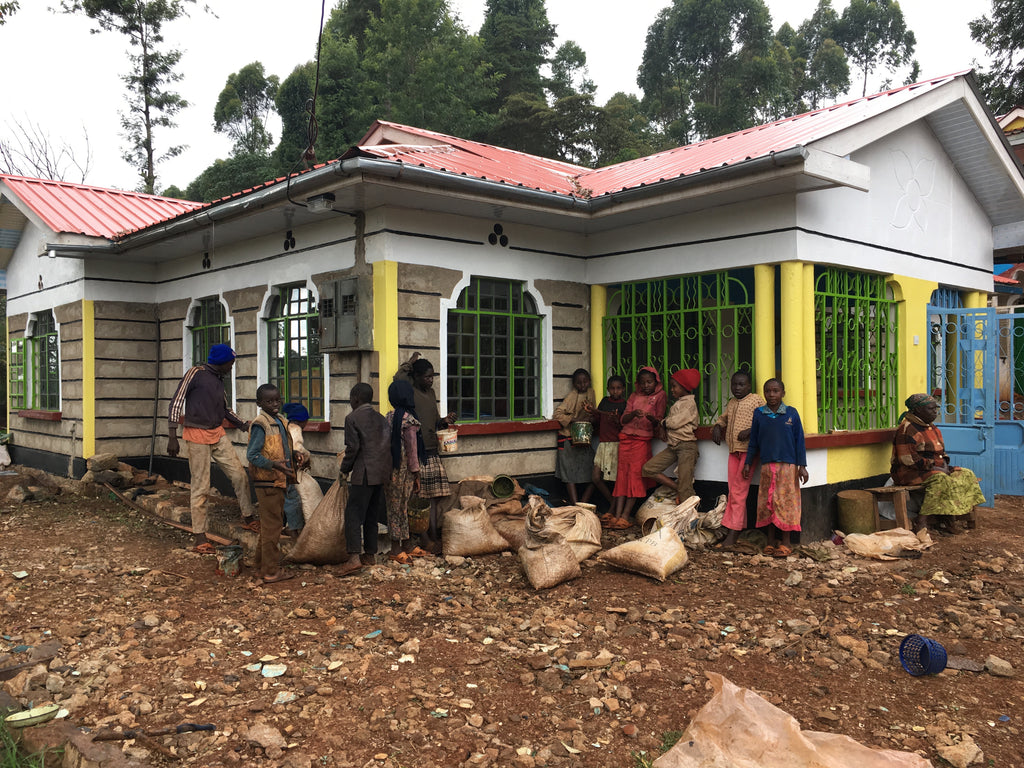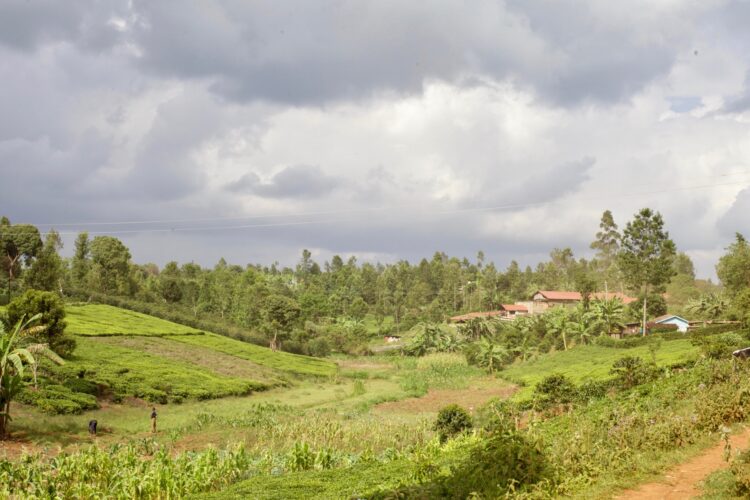Kenya Journals by Kris Schackmann – 5 Elephant’s co-founder and inexperienced espresso purchaser.
With the earlier weblog put up we have began a sequence of journal entries on 5 Elephant’s sourcing journeys to Kenya final couple of years. To learn Half 1 take a look right here.
—-
…after which got here El Niño.
The 2014–16 El Niño phenomenon, in accordance to the World Meteorological Group, is one of the strongest since 1950. This affected Kenya in methods it had not seen in many years. The complete Jap African area skilled excessive intervals of rain precisely at the time when espresso was being dried and milled.
It was estimated that solely 1% of all espresso was affected, however we tasted the aftermath in Kenyan coffees from roasters all over the world final 12 months. The outcome for 5 Elephant was that we shipped a full container of Kenyan coffees all the means to Hamburg, Germany, with round 60% defective espresso on it.
As a medium sized roaster, we do what we can to shield ourselves from espresso being broken throughout transport, however this incident has been the one biggest studying expertise of our understanding of working at origin.

Espresso Broken From Moist Milling
A container of espresso is round 17,000kg of inexperienced espresso. So we mainly paid money for and shipped round 10,000kg of espresso that we may by no means promote, to Hamburg. It has taken us virtually 2 years to get well from this and as a outcome did not go to Kenya final 12 months, alongside with quite a few different residual facet results.
We additionally have been left with many unanswered questions about how the espresso, that we introduced again with us as our supply pattern, may style fantastic whereas at the similar time espresso that was shipped by container tasted like 2 12 months outdated moist cardboard. There was simply no clarification given to us that may reply this.

Peter Dwelling of Espresso Administration Providers
Property Espresso in Kenya
We’ve requested ourselves how may one thing like this occur? After some significantly lengthy emails over the course of 2016, we have been offered with one of the coffees from an Property who we had “dedicated” to buy for some years. The espresso, whereas nonetheless with acceptable moisture ranges, had hints of the taste we faulted in the espresso from the 12 months earlier than.
Oh no!
The title Property alludes to some fancy unfold of land with a large home, manicured backyard and tons of employees working for the Property proprietor. That is merely not the actuality. In most instances Estates are small farmers producing 20-50 baggage of espresso complete in a 12 months and largely by themselves or with a few employed employees for harvesting and moist milling.
We’ve seen estates with piles of trash round a small home and soiled youngsters working exhausting whereas on faculty break. In most instances you see farm animals dwelling straight in the space of manufacturing, typically with farm animals pens straight uphill from the place espresso is dried. Unnecessary to say, it is pretty straightforward to see an Property who may presumably produce good espresso earlier than you even cup it and clear when you see a producer who you would by no means work with.

Sadly, A Farm We Do Not Have The Sources To Assist.
In the case of the delight of our 2016 Kenya purchases, The Juliet Property was the most spectacular espresso we have ever tasted from Kenya and our go to to Julius and Edith Mariuki additional bolstered our thought that this was a producer we may commit to for some time. On the spot we shook fingers and determined to work with every different for the subsequent years.

Our Companions Julius and Edith Mariuki of Juliet Property
So from the perspective of a cupping desk in Berlin in April 2017, we have been terrified with what we tasted when we cupped Juliet earlier this 12 months. We have been so eliminated from the course of and the relationship that we acted irresponsibly. We didn’t see it then and in reality, have been largely pondering about self-preservation and our status for persistently sourcing what we assume to be some of the greatest coffees Kenya has to supply.
After cupping the espresso from 2 completely different samples that have been mailed from Kenya, we turned down the espresso this 12 months and determined that if there was any sense for us to even go to Kenya, that we owed it to our companions to heed a sure duty.
With a willpower to perceive and commit additional to each course of of the espresso we need to associate with, we headed down to Kenya the first week of December.
What we would be taught would begin to create a worth that we so vastly had been overlooking.
To be continued…


